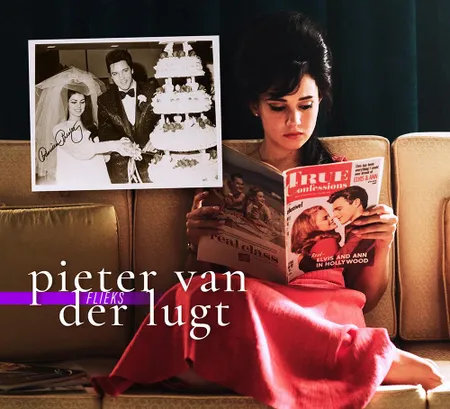THE first scene of Sofia Coppola's new movie, Priscilla, is a close-up of two feet with red toenails walking across a woolly pink carpet. These are the feet of a delicate woman or a young girl. She walks carefully. Is it hesitation or is she enjoying the luxury of the carpet and the moment?
In the next she is putting on mascara and false eyelashes. She is getting ready for her role as Elvis Presley's plus one. Then there are glimpses of extravagant ornaments, furniture, limousines and a pile of fan letters. It's an imagined Graceland — not a replica — reminding you early on that you're going to see everything from Priscilla's perspective.
Suddenly the movie jumps back to 1959 to the Eagle Club on an American air force base in West Germany, where 14-year-old Priscilla Beaulieu is doing homework. A soldier chats with her and asks if she wants to go to Elvis's house for the weekend with him and his wife. Presley is apparently always happy to see people from “back home".
Even considering the time and place, it's a strange moment.
But when Priscilla meets Elvis soon afterwards among his friends, no one seems shocked or surprised by her presence. He says, “You're just a baby," then talks to her like a schoolboy on his first date.
This is a 25-year-old man who later, as the movie suggests, has several affairs. Yet he does not touch Priscilla until she is 21 and they are married. Things are “different" with her than with the other women, he says.
Lees hierdie artikel in Afrikaans:
Camera tricks
One thing about Coppola as a screenwriter and director is that she keeps you wondering. The dialogue is deliberately mundane, the presentation and lighting are still basic even though she can surely command big money for her productions by now.
Her two favourite camera tricks work brilliantly in this picture. One is to walk right behind an actor with a handheld camera just above shoulder height. That way you and the character see the same thing at the same time, which means you react similarly to whatever becomes visible.
The other technique is long shots like the one when Priscilla first visits Graceland. Elvis and friends are standing around a pool table in a corner of the living room and we watch with them as Priscilla, small in the enormous room, hesitantly approaches.
When he picks her up in his arms, the contrast between the 1.95m Jacob Elordi and Cailee Spaeny's 1.55m is a strong symbol of the eternal imbalance between the king in his palace and his young love.
Spaeny is remarkable as a character who starts out young. She may even deserve an Oscar, but it will be a struggle against some of the established names who will be lining up for best actress.
Elvis is always the southern gentleman and domineering in the kindest way imaginable. He decides what Priscilla should wear, how she should look and what she should do with her days. She is not allowed to work, even though she is bored, and he feeds her an unhealthy amount of stay-awake pills.
She often asks to visit him when he's on tour or making movies but he won't let her. “I need you there to keep the home fires burning," is his explanation. While he sees the world and has everyone's attention, her life only gets smaller and dull.
It's hard not to pick a side while watching these two. But Coppola often says she doesn't dictate to viewers and is just an observer. The movie doesn't send you in a certain direction — you start to form an opinion yourself. That in itself is an interesting experience.
Nepo baby
For fanatical fans of her father and especially his Godfather movies, Coppola remains a nepo baby. They reckon she spoiled the third movie with her disastrous acting. Reviewers often lose patience with her style and comment that her movies look good but are superficial. Sometimes they go as far as saying she only gets a chance to direct because she comes from a well-known Hollywood family.
Priscilla was controversial even before it was screened. Priscilla Presley approved and promoted the movie but her daughter Lisa Marie watched an early clip before her death and said she saw nothing of her father in it. “It's shockingly vindictive and contemptuous," was her summary.
Furthermore, Elvis Presley Enterprises refused to let his music be used and called the picture a “money grab".
Since she is dealing with so much prejudice, it was brave of Coppola to get close to an icon like Elvis. In the end, she made something more satisfying than quite a few of this year's Oscar contenders.
“My movies are not about being, but becoming,” Coppola says. “It’s about misunderstandings between people and places, being disconnected and looking for moments of connection.”
Priscilla unfolds without fuss, almost unnoticed. It doesn't try to solve or explain anything and you shouldn't wait for an uplifting message or summarising conclusion. That's where the power of Coppola's pictures lies.
♦ VWB ♦
BE PART OF THE CONVERSATION: Go to the bottom of this page to share your opinion. We look forward to hearing from you.




To comment on this article, register (it's fast and free) or log in.
First read Vrye Weekblad's Comment Policy before commenting.